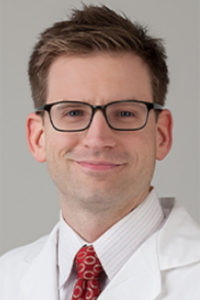
Pulmonologists have long believed patients with group 5 pulmonary hypertension have limited treatment options. Given the lack of understanding of the mechanisms associated with the development of pulmonary hypertension in these patients and the unclear guidelines for management, physicians have been uncomfortable with offering treatment to this patient population.
Fortunately, as interest in pulmonary hypertension in general has increased, so has interest group 5 PH, and there is reason to hope for a future where physicians will have more options for these patients.
So said Andrew D. Mihalek, MD, who is assistant professor of medicine in the division of pulmonary and critical care medicine at the University of Virginia. Dr. Mihalek will chair a session titled Opening the Black Box and Discovering Gray: Diseases Associated With Group 5 Pulmonary Hypertension, which will start at 3:15 pm Monday in room 298 of the convention center.
“By definition, group 5 pulmonary hypertension is a disease of the unknown,” Dr. Mihalek said. “Traditionally, I think it’s fair to say, group 5 has been ignored because there are currently no FDA-approved medications for the treatment of it. As we learn more about this disease, we should be more aggressive about offering therapies and be open to idea of trying new interventions.”
Dr. Mihalek said that while group 5 includes some “metabolic unicorns” with little data to inform treatment, those conditions won’t be seen by most pulmonologists. Dr. Mihalek and his colleagues will focus on conditions pulmonologists are likely to encounter—pulmonary hypertension as the result of end-stage renal disease, sickle cell disease, and sarcoidosis.
During his presentation, Dr. Mihalek will explain why physicians no longer need to fear pulmonary hypertension associated with end-stage renal disease.
“As our understanding improves, it seems possible—even likely—that the pulmonary hypertension we see in these patients is a manifestation of poorly controlled heart failure,” he said. “This should help clinicians feel a little more grounded when dealing with it. Instead of the unknown, we can say the pulmonary hypertension is secondary to heart failure. People will feel more comfortable with their treatment plans and preparing for transplant candidacy, which is really the issue here. People with end-stage renal disease are often withheld from transplant lists because of their pulmonary hypertension. But, if we frame it as heart failure, I think we’ll see more patients become eligible for transplant down the road.”
In his talk, Mark T. Gladwin, MD, who is a professor and chair of the department of medicine at the University of Pittsburgh, will address pulmonary hypertension associated with hemolytic anemia.
“In regard to sickle cell disease, traditionally physicians have been extremely nihilistic about it, partly because the walk-PHaSST trial, which looked at treating patients afflicted by sickle cell disease complicated by pulmonary hypertension with sildenafil, had such poor outcomes,” said Dr. Mihalek. “Since then, many providers have not been aggressive in offering these patients therapies.”
“Dr. Gladwin will explore recent studies looking at the possibility of introducing exchange transfusions to these patients. There’s also a trend toward offering stem cell transplants to these patients, which isn’t something that would be in the typical armament for treating pulmonary hypertension patients. It is interesting research that warrants optimism that wasn’t previous there.”
Finally, Mardi Gomberg-Maitland, MD, MS, FCCP, will examine pulmonary hypertension associated with sarcoidosis, including the new epidemiological data outlining the prevalence of sarcoidosis-associated PH.
“For a long time, we’ve tried to group these diseases,” Dr. Mihalek said. “But now, as we get more comfortable with genomics and metabolomics and patient profiles, there’s a desire to come up with treatment options that can be tailored for the patient at the bedside. As we do that, it should warrant a re-evaluation of patients we previous thought we couldn’t help.”





